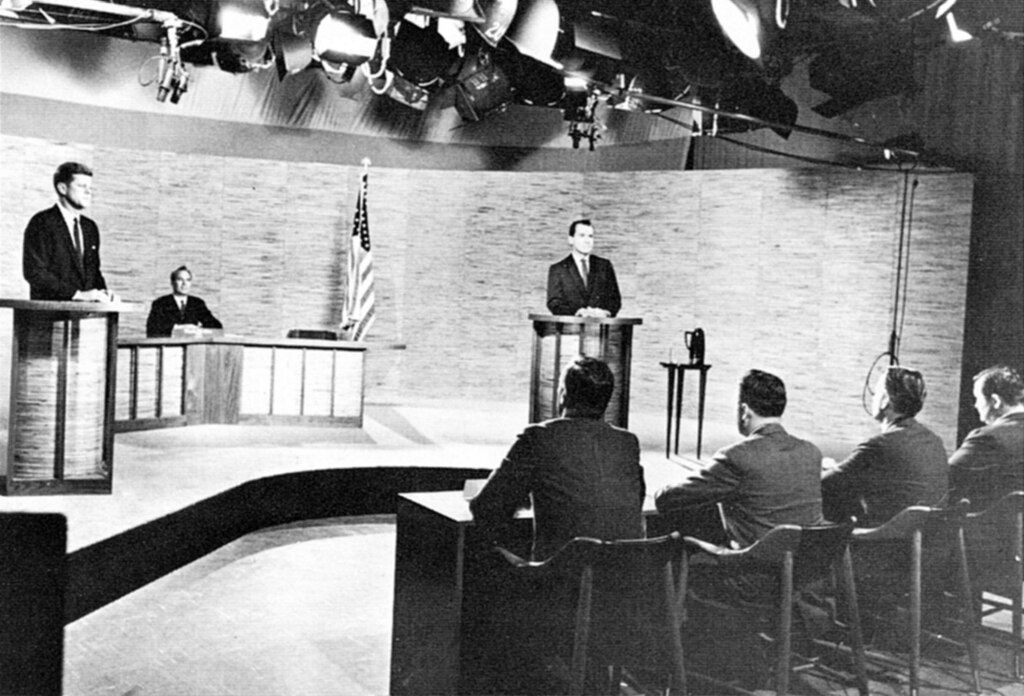Though there have been versions of presidential debates and discourse over the centuries of American history, many believe that the first debate that mirrors current presidential debates was held on September 26th, 1960. Richard Nixon and John F. Kennedy were in the heat of election season when they agreed to participate in a series of four debates that were televised for the American people. They discussed the most controversial topics of their time, looking to target and sway the undecided voter. Before the first debate on September 26th, it appeared that Nixon led the polls. However, due to many factors, including his unfamiliarity with televised performances and physical appearance, John F. Kennedy was considered the winner. These four debates during the 1960 election season created the footprint for the current presidential debates that are now regarded as intrinsic to election season.
Fun Facts:
- After these debates, John F. Kennedy went on to become the 35th president of the United States, with Lyndon B. Johnson as his second in command.
- Richard M. Nixon became the 36th vice president of the United States; he served this role under Dwight D Eisenhower. He later would be elected as the 37th president.
- During the debate, viewers could discern Nixon’s significant weight loss, which resulted from being 20 pounds underweight after a few weeks in the hospital following knee surgery. His decision to forgo makeup for the debate was a striking example of how appearance can influence public perception, particularly in the era of visual media.
- On the other hand, Kennedy had spent a few weeks campaigning in California, working up a nice tan, which made him look younger and well-rested.
- Howard Kingsbury Smith, a respected journalist and broadcaster born in Louisiana, moderated the debate in Chicago, Illinois. His experience and impartiality were crucial in ensuring a fair and informative debate.
- The debate mainly revolved around domestic issues, reflecting the concerns of the American public at the time. The 77 million American viewers favored Nixon as the winner, appreciating his experience and knowledge on these issues. However, his haggard, worn-out look left many uneasy, highlighting the growing importance of image and presentation in politics.
- The four debates before the 1960 presidential elections set the stage for Kennedy’s victory and laid the groundwork for future presidential debates in the United States. They inspired a new era of political discourse, shaping the way candidates present themselves and the issues they discuss, and influencing the role of media in politics. This impact is still felt today, making the 1960 debates a crucial moment in American political history.

